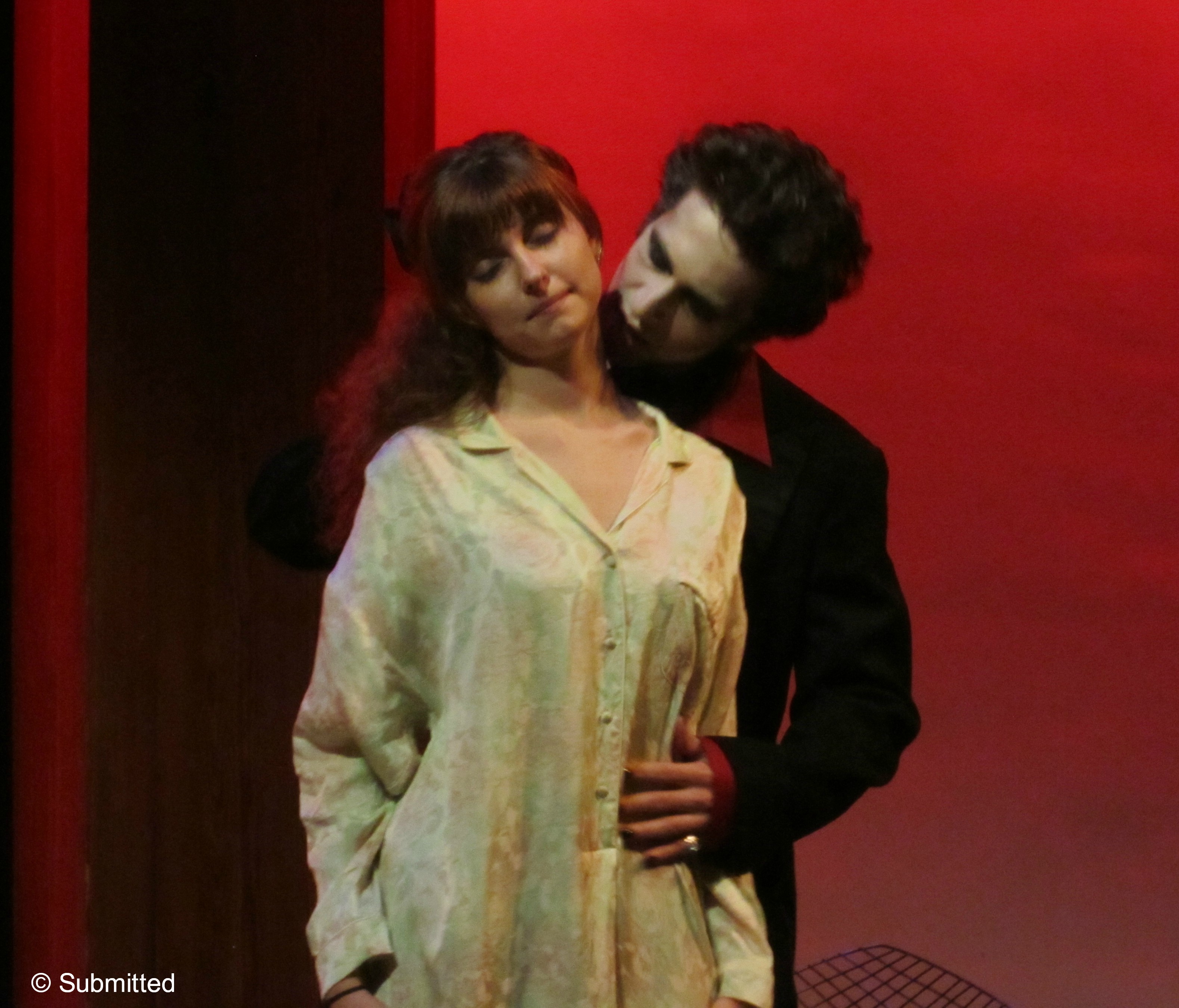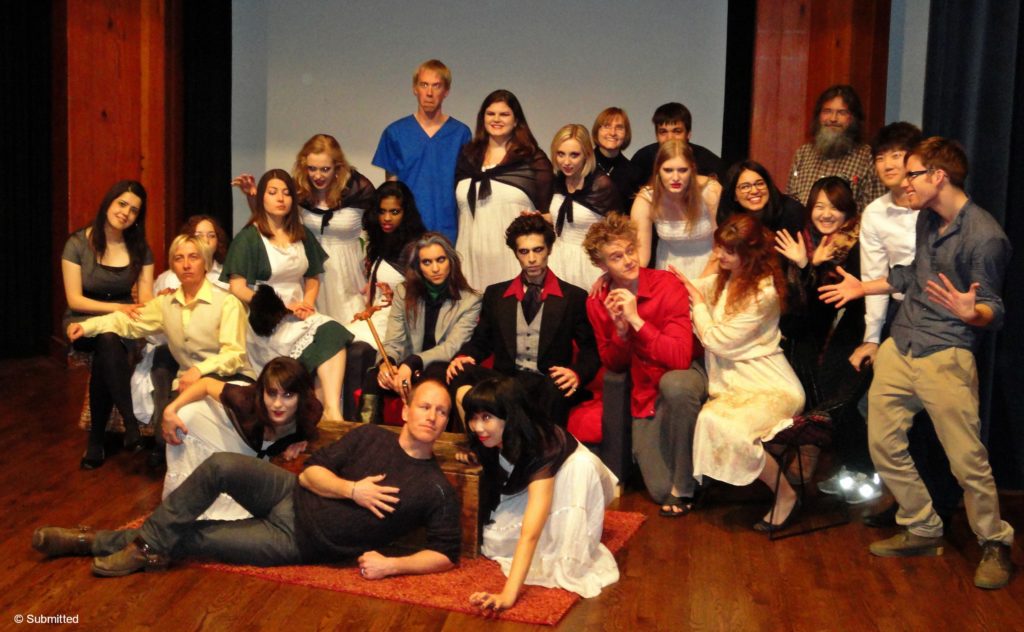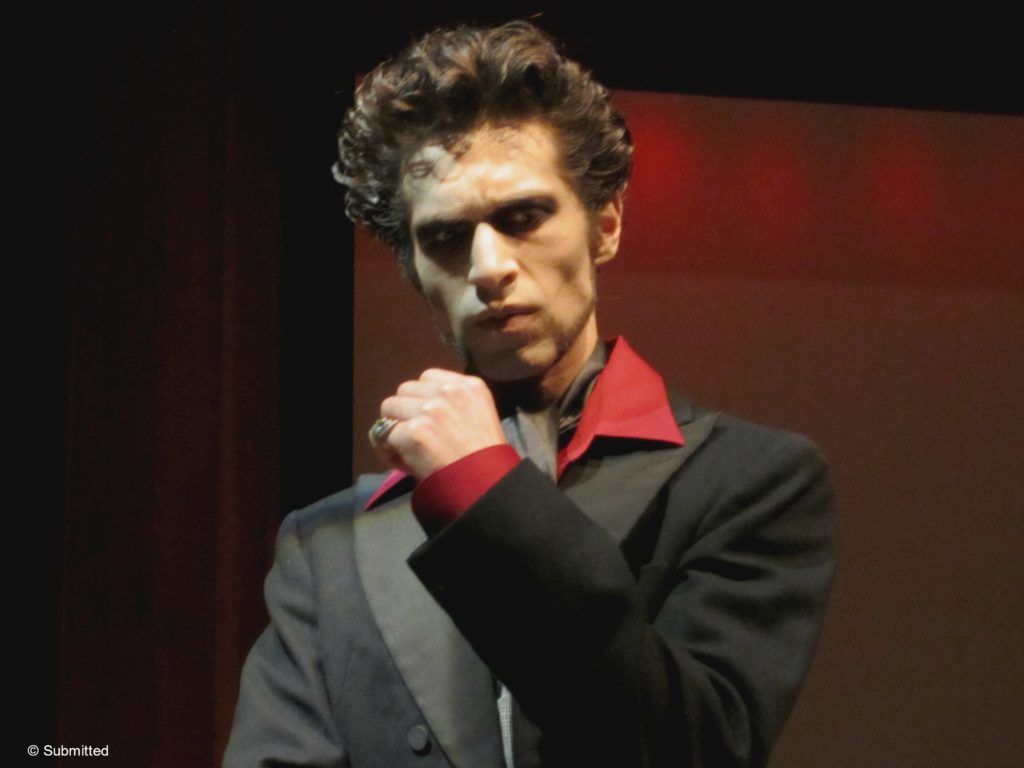Apr 5, 2018 - Kerstin Kormendy for SoGerman
Where would crazed scientists, spies, and vampires meet to speak German?
Natürlich on stage with the cast of “Theater DU”. The German student drama group is the vital core of associate professor Erol Boran’s theatre course at the University of Toronto. Every two years, 20 students study and perform a play entirely in German in front of their audience. After the last curtain call, the group leaves the stage with a passion for the arts, cultural competence, and newly learned or improved German language skills.

At German student theatre course the spotlights on cultural competence
“The German Theatre Group and non-English plays like the one we performed help to showcase the strong cultural diversity that is part of Canada’s identity,” says Yannick Muellenbach, University of Toronto and Theater DU alumnus. “People with different languages and cultures can come together and peacefully share art and culture from all parts of the world.”
Yannick was working on completing his Bachelor of Science when he attended the performance of “Die Physiker” by Theater DU. Impressed by the play, Yannick looked into joining the cast. He chose the theatre course as an elective next to his biology and anthropology classes – and took on the lead role in “Drakul(j)a”, a modern adaption by Erol Boran of the well-known Dracula tale.
“I was thrilled to have had the honor of actually playing Dracula in our production, especially because it was the character that I wanted to portray the most,” Yannick says.

Under the direction of Erol, the team works for months to put together the show. The students organize and create everything needed to perform the play: from writing programs to filming trailers, finding costumes and designing stage sets, to visiting potential sponsors and composing the music.
Teamwork and a tight schedule are essential to bring the play alive on stage. In the first meetings, Erol explains the commitment explicitly to the students. Who decides to stay is part of the collaboration.
“I think by now it got about that this course is a lot of fun,” says Erol. “Frequently, there are students who initially believe that they are too shy to be on stage. And yet, eventually, they all notice that it’s fascinating to perform and that they want to do it. They want to be part of such a project, which is really a group project.”
Students don’t need to be able to speak German to join the theatre course. They come from different academic and cultural backgrounds. Some are exchange students who arrived in Canada to learn and improve their English proficiency.
We created something that was set free into the world through our united effort and it felt wonderful.
The cast spends hours with contextual work. How does their character speak, move, and act? Why are they using certain figures of speech and phrases? To portray their role as authentic as possible, students analyze their scripts and attend language training with German graduate and PhD students. Erol also asks the students to write reports and papers in German in relation to the production.
“It’s an incredible learning effect,” says Erol. “It’s something where the language is learnt, but language is not at the center, because it basically happens incidentally. I think this is something the students really enjoy.”
Learning the script by heart is like a springboard, according to Erol. Pursuing language, literature and liberal arts classes, allows to gain a critical understanding, “to read and analyze not only literary texts, but cultural symbols in general.”
“I believe that this is where you transmit cultural competence, but also a general understanding for the differences between cultures,” says Erol.

According to Yannick, the performance of “Drakul(j)a” was an example of “how the arts can help to communicate values that Germany and Canada share. Since the play was based on the classic tale, the audience didn’t need to understand German to follow the plot line. The students had also prepared short summaries in English they offered to audience members.
Yannick recorded the result of their months-long work in his journal (*translated from German):
“That was it… It’s over. I don’t want it to be over. I want more… But hey, I should at least be somewhat happy – because it was marvelous! In the last days, we literally brought our “Drakul(j)a” theatre play to life. We created something that was set free into the world through our united effort and it felt wonderful. It was an unbelievably beautiful experience and I wish it would continue… Our last rehearsal and the dress-rehearsal proceeded without any major problems, and I thought each of our main performances were simply spectacular. The stage, the actors, the tech team, and the backstage crew, and yes, also the director – everything merged into a joint entity and together we were masterful! In the last days, I really noticed how gifted and unique the people from our theatre group are. I don’t have to write out any specific names, because everyone was truly great. I already know now that I will miss them… That I will really miss everything and everyone… “Drakul(j)a”, the theatre production and the people in it, will forever be an unforgettable experience for me.”
More information on the Theater DU can be found here.